The mystery of Morocco’s missing king
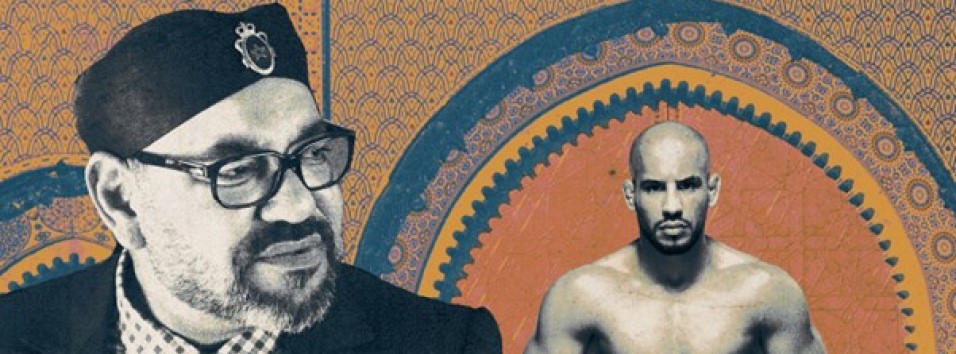

This article was originally published on 14 April, 2023 by author Nicolas Pelham in 1843 magazine.
Five years ago, an unusual image appeared on Instagram. It showed Mohammed VI, the 54-year-old king of Morocco, sitting on a sofa next to a muscular man in sportswear. The two men were pressed up next to each other with matching grins like a pair of kids at summer camp. Moroccans were more accustomed to seeing their king alone on a gilded throne.
The story behind the picture was even stranger. Abu Azaitar, the 32-year-old man sitting next to the king, is a veteran of the German prison system as well as a mixed-martial-arts (MMA) champion. Since he moved to Morocco in 2018 his bling-filled Instagram feed has caused the country’s conservative elite to shudder. It’s not just the flashy cars, it’s the strikingly informal tone in which he addresses the monarch: “Our dear King,” he wrote next to one photo of the two of them together. “I can’t thank him enough for everything he has done for us.”
A crisis is brewing in Morocco, and the beaming kickboxer is at the heart of it. The country is regarded as one of the Arab world’s success stories. It has a thriving car industry and its medieval souks and tranquil riads beguile Western tourists. Morocco seems to have all the charm of the Middle East and none of its turmoil.
One former official estimates that the king was out of the country for 200 days last year
But Morocco’s 37m people face the same problems that have roiled so much of the Arab world over the past decade: insufficient jobs, soaring inflation and oppressive security services. This has not, so far, resulted in serious upheaval, in part because of the king’s prompt introduction of constitutional reforms at the height of the Arab spring in 2011. But now turmoil is on the horizon, and the king, insiders say, is hardly to be seen.
For the past four years Azaitar and his two brothers have monopolised the monarch’s attention. A court insider says that advisers have tried to reduce the Azaitars’ influence, but to no avail. Some officials even appear to have colluded in the publication of articles exposing Azaitar’s criminal past and alleged extravagance. The king seems impervious.
Mohammed is not just distracted – he is often entirely absent. He liked to travel and take holidays before he met the Azaitars but the tendency appears to have become much more pronounced. Sometimes he cloisters himself with the brothers in a private ranch in the Moroccan countryside. Sometimes the group escapes to a hideaway in west Africa. When Gabon palls – “so boring, there’s a beach but nothing else to do,” moans one member of the entourage – they descend on Paris. One former official estimates that the king was out of the country for 200 days last year.
“We’re a plane without a pilot,” frets an official
Mohammed first appeared in public with the Azaitars on April 20th 2018, at an event to celebrate their achievements in MMA. In photos released to the press, the king and the three brothers stand together holding an MMA championship belt.
As their friendship deepened, Azaitar began to post photographs of himself with the king. He and his brothers joined the king’s itinerant household – as his “personal trainers”, officials were reportedly told – and brought their family and friends with them. In some ways, the friendship has been salutary. The king, who was somewhat overweight at the time he met the brothers, has suffered from asthma and pulmonary complaints. The cage fighters installed a gym in the palace and he started to work out. His face began to lose its puffiness, and he looked increasingly relaxed, almost fit.
The king for his part has showered the brothers with largesse. When their mother died he allowed them to bury her in the grounds of his palace in Tangiers. The brothers acquired valuable beach-front real estate and flaunted their lifestyle on social media. “They use military jets, they have carte blanche to function in the palace as they want, they can go to the garage and pick up the cars they want,” says a royal insider. “It’s so bizarre.” (1843 magazine put the allegations in this piece to both the Azaitars and the Moroccan government, but received no response.)
As the brothers thrived, court officials grew ashen-faced. In theory Morocco has a constitutional monarchy. In reality Mohammed is far more than a figurehead. He has the final say on every matter of importance, and without him, the country’s political factions tend to descend into impotent bickering. The Middle East is littered with the wrecks of regimes that have failed to act decisively in moments of crisis. “We’re a plane without a pilot,” frets a former official.
Mohammed is the most publicity-shy of Middle Eastern leaders. Since becoming king in 1999 he has never hosted a press conference or given a television interview. He shuns international summits. When he has to give a public address on Throne Day, an annual event commemorating his succession, he fumbles his words. His demeanour, down to the t-shirts and trainers he wears, suggests a desire to be something other than a ruler (though he seems happy enough to enjoy the financial privileges it brings). “He’s not interested in power. All he wants to lead is his life,” says a courtier.
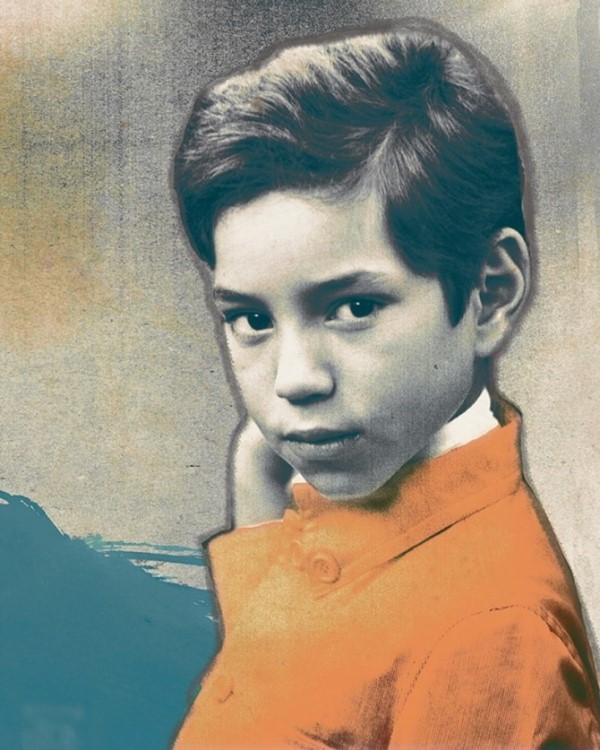
Some academics believe that the institution of monarchy helped Morocco avoid the revolutions that swept the Arab world in 2011. Unlike the presidents of neighbouring republics, the king could quickly introduce reforms while still representing stability and continuity. The sense of Morocco’s monarchy as something timeless and ancient is inculcated from an early age. Schoolchildren are taught that their royal house goes back to the eighth century.
The cage fighters installed a gym in the palace and the king started to work out
The monarchy’s mystique is reinforced with symbols and rituals such as the annual bayah, or oath of allegiance, when the king walks out of his palace gates to be greeted by officials, dressed in white djellabas with pointed hoods, who proceed to kiss his hand. The desk from which he delivers his annual televised address is draped with a cloth embroidered with his coat of arms.
In fact this coat of arms dates back only to 1957. Historically, the Alawi dynasty from which Mohammed descends were sultans whose authority could be patchy. When the French colonised Morocco in the late 19th century, they centralised the state and formalised its boundaries. They also boosted the authority of the sultan (who later became the king), introducing Throne Day rituals in the 1930s. They turned the sultan’s deputies, or makhzen, into a modern bureaucracy.
Today the makhzen is a sprawling state apparatus encompassing elected and appointed officials. Placing great emphasis on elaborate protocols, it has become an institution in its own right as well as an extension of the monarchy (Moroccans also use the term makhzen to convey something like the “deep state”, describing the influence of powerful business and political elites).
Mohammed threw a huge bash for his 38th birthday and flew in Lou Bega, the German pop star, on his private jet. At 2am, the king had him play “Just a Gigolo”
The king sits at the pinnacle of this system. After the Arab spring some constitutional changes were introduced giving more power to elected officials, but the monarch can still rule as an autocrat if he wants to. He is head of the armed forces, the ultimate judicial authority, and can dismiss parliament by royal decree.
Mohammed’s father, Hassan II, exercised regal power to the full and was feared for it. “He was non-stop, domineering, present in everything and immensely hard-working,” remembers a friend of the family. An imposing figure who kept a secret harem of 50 concubines, he was never happier than when grandstanding at Arab summits with a cigarette in his hand. Hassan corralled the makhzen into punishing his enemies. He hung subjects from their ankles in secret prisons. “Whoever disobeys me, disobeys God,” the king once declared in 1994, quoting a saying by the Prophet.
Mohammed grew up in the shadow of his demanding father. His school regimen began at 6am with an hour’s recital of the Koran. Then lessons started. He was educated at a college built especially for him within the crenellated palace walls. His father wanted Mohammed to feel the pressure of competition, so he filled his son’s school with 12 classmates hand-picked for their brilliance. According to “Le Roi prédateur”, a biography of Mohammed published in 2012 by two French journalists, Hassan was once heard ordering his henchmen to give his son 20 lashes when he seemed to be falling behind with his studies. (The authors were recently convicted in France of attempting to blackmail the Moroccan government, though the book itself remains well-regarded. They are reported to have launched an appeal.)
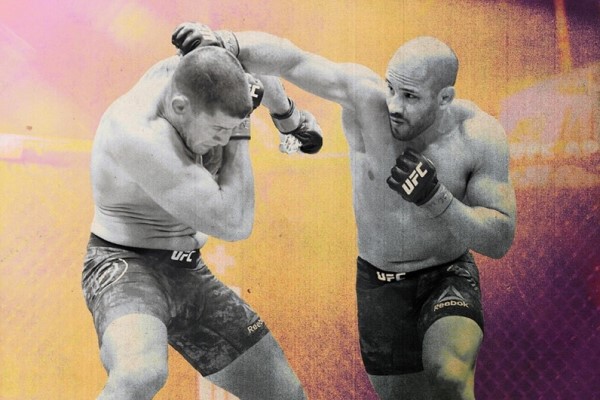
As a child Mohammed was interested in anything that conjured up the world elsewhere. “He never went outside the palace walls and fantasised about what lay beyond,” says a childhood friend. One of his favourite songs was “Breakfast in America”, by the English rock band Supertramp – a paean to the appeal of escaping in a jumbo jet. He excelled at languages, and went abroad shortly after finishing his Masters in public law in Rabat.
Officially, he was interning at the European Commission. But Europe’s nightlife seems to have appealed to him more than its committee rooms. According to another biography of Mohammed by Ferran Sales Aige, an El Pais journalist, Hassan’s spies informed him that the young prince was frequenting bars. The king’s dissatisfaction with his son grew. “A chromosome error,” he was once reported to have remarked in despair. He sent Mohammed to study law in Nice and dispatched his interior minister to keep an eye on him.
As the years passed father and son appeared to be estranged. Mohammed avoided Hassan, even when he was back in Morocco. On trips home he spent much of his time in Amnesia, a sleazy underground club in the capital. As “Le Roi prédateur” recounts, Mohammed’s best friend from school, Fouad Ali El Himma, installed a lift from his flat above that descended to Amnesia’s bowels.
In 2004 Abu was sentenced to two years in prison for dousing a businessman in lighter fuel and stealing his Ferrari
When Hassan died in July 1999, Mohammed dutifully cried during the funeral procession. But friends sensed that a load had been lifted. For a while, it seemed as though he was destined to become an energetic, modernising king. He was quick to attack the Moroccan elite and their mores. It also can’t have escaped his notice that some of the courtiers now kissing his hand were the same men who had helped his father bully and humiliate him.
Within months of taking the throne he began to fire senior officials, starting with the interior minister rumoured to have spied on him in Nice. He appointed an Equity and Reconciliation Commission to review cases of human-rights abuses under his father. He reformed the moudawana, the Islamic legal code, making it easier for women to divorce their husbands. He built a network of motorways and railways across the country. Though the liberalisation process had begun under Hassan, Morocco’s press portrayed Mohammed as the saviour who would finally bring the feudal kingdom into the modern age.
To help manage the pushback against these reforms, Mohammed appointed his fun-loving old school friends to positions in the makhzen. But they didn’t seem to share his desire to shake things up. According to a former royal insider, the king’s friends were keen for him to do the conventional thing and take a wife. To their relief he married Salma, a computer engineer who worked for the royal company, ona Group, in 2002. “He had to produce an heir, a crown prince,” says a former Western ambassador. “He did his job.”
Mohammed’s enthusiasm for ruling waned during his first few years in power, according to a former insider. The makhzen seemed to have hemmed him in, and the old desire to thumb his nose at authority returned. “The older he gets the younger he behaves,” says a childhood friend. He spent more and more time abroad with artists, actors, comedians and rappers. He threw a huge bash for his 38th birthday and flew in Lou Bega, the German pop star, on his private jet. At 2am, the king, whose titles include “Commander of the Faithful”, had him play “Just a Gigolo”.
Mohammed began to spend increasing amounts of time pursuing his love of music, especially north African rap. It raged against hogra – the feelings of humiliation and powerlessness that afflict many young north Africans. In 2013 he gave a royal medal to Don Bigg, a Moroccan gangster rapper. He made the kingdom a hub for artists like Maître Gims, the Congolese rapper, and RedOne, Lady Gaga’s Moroccan-born producer. Many Moroccans were thrilled with their streetwise king.
The makhzen and the elite were horrified, especially at his companions from the demi-monde. These wayward years weren’t good for Mohammed’s health. He began to pad out and wore thick glasses to hide a growth on his left eye. He would gasp for breath climbing short flights of steps. Then the Azaitars arrived.
The Azaitars come from a small town called Frechen on the outskirts of Cologne. Frechen traces its history back to the Dark Ages. Attitudes to migrants and minorities there also hark back to an earlier time. Until 2018, the name of the local carnival invoked a racist slur.
Makhzen insiders and courtiers started to complain that Abu and his brothers acted as if they were royals themselves. “They treat provincial governors like their drivers”
The town’s Muslims keep a low profile. The local mosque is an inconspicuous house with no indication of being a place of worship. The Azaitars’ parents came from the Rif, the Berber mountains in Morocco’s north. They emigrated under Germany’s Gastarbeiter programme, a fixed-term visa scheme introduced after the second world war when the West German government wanted cheap, temporary foreign labour. The visa limit was later scrapped and many of these workers opted to stay permanently, but they often struggled to integrate. Some came to embrace their Islamic identity more than they had previously. The Azaitars’ father ran the local mosque. He named his sons after the first three Sunni caliphs, Abu Bakr, Ottman and Omar, and sent them to the King Fahd Academy in Bonn, an Arabic-speaking school funded by Saudi Arabia.
Two of the quickest ways to escape the Gastarbeiter underclass are crime and sport. The Azaitars pursued both vocations. As teenagers, Abu and his identical twin, Omar, got involved in the violent fringes of Cologne’s nightclub scene: Abu later admitted to a German newspaper that he was beating people up and robbing them “almost every day”. In 2004 Abu was sentenced to two years in prison for taking part in an attack on a businessman who was doused in lighter fuel and then deprived of his Ferrari. He was back in court shortly after his release for punching his girlfriend at a Christmas market and puncturing her eardrum. When asked about newspaper reports of his criminal record years later, the Ultimate Fighting Championship (UFC) fighter replied in broken English, “When we are young everybody do something wrong.”
The makhzen treasure ornate craftsmanship, the brothers prefer bling. In March 2022 the Azaitars opened another fast-food joint along Rabat’s riverfront and stationed a bright pink Lamborghini outside the door
Afterwards he threw himself into sport, first kickboxing, then MMA. He became so good that he was selected for the UFC in Hamburg in 2018 (he won his match). His younger brother Ottman was also a competitive MMA fighter; Abu’s twin, Omar, managed them both. The brothers were heroes to many of Cologne’s north African migrants. Provincial newspapers dubbed Abu and Omar the “Brutal Twins”. They mixed with some of the most famous people in Germany: footballers and car-racing champions, actors and porn stars. Among their new-found celebrity friends was RedOne, Lady Gaga’s producer, who reportedly served as King Mohammed’s unofficial ambassador to the music business. According to one of Mohammed’s childhood friends, RedOne brought Abu to Morocco and introduced him to the royal entourage.
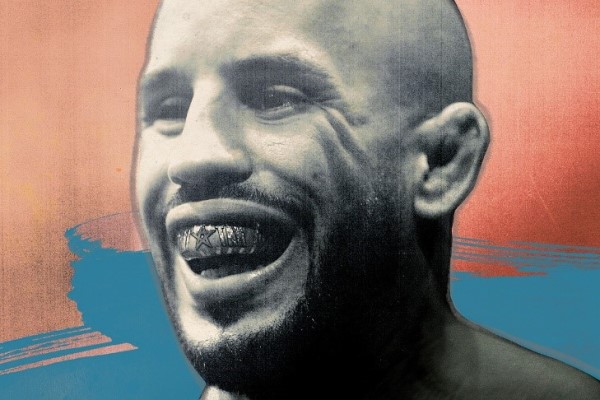
From this point onwards, Abu’s matches grew rarer. He seemed to prefer the palace to the ring. Mohammed reportedly took Abu and his brothers cruising on the Lusail, the Qatari emir’s yacht, and partied with them in the Seychelles. According to a report in the Spanish media, he lent them his own private jets. The Azaitars opened a fast-food joint in the king’s luxury new development, Tangier’s Marina Bay. Mohammed even sent his son and heir, Hassan, to munch on their burgers at the opening. Abu had the royal coat of arms sewn into his garments. According to a report in the Moroccan media, if anyone stopped him he called himself “nass dial malik” (one of the king’s people).
Abu was given some official duties – Mohammed put him in charge of a sports association which invited famous footballers to an event celebrating Morocco’s annexation of Western Sahara in 1976. Makhzen insiders and courtiers started to complain that Abu and his brothers acted as if they were royals themselves. They “boss around ministers”, grumbles one courtier. “They treat provincial governors like their drivers,” adds a businessman. The king “has made it pretty clear to all his ministers that they can speak on his behalf”, says a former friend. “They can call ministries for permissions for any stuff they want, direct and unfettered access.”
To the horror of former confidantes, the Azaitars replaced them as the king’s gatekeepers. Now it is the boys from Frechen who decide who receives an audience and who gets sent away. Senior officials have reportedly been shown the door. “They would even ask his sisters and cousins to leave,” says a former member of the royal inner circle.
An outlet loyal to the government, Hespress, said the brothers wielded a “Rasputin-like influence”
The Azaitars’ behaviour irked the makhzen, as did the privileges they accrued. Some of this was pure snobbery. The makhzen treasure ornate craftsmanship; the brothers prefer bling. In March 2022 they opened another fast-food joint along Rabat’s riverfront and stationed a bright pink Lamborghini outside the door. For further effect they added a huge pink unicorn, pink giraffe and two prancing blue stallions to the entrance. Next door they set up a doughnut shop with a crown on its logo and a giant throne made of doughnuts outside.
For some Moroccans this was a breath of fresh air. The Moroccan elite had mired them for long enough in a stuffy culture that worships authority and tradition. The brutal twins from Frechen seemed to be saying it was all a bit of a joke.
If the makhzen could be represented by a single person, that might well be Abdellatif Hammouchi, Morocco’s saturnine security tsar. Hammouchi is a bureaucrat to his bones. Of humble origins, he climbed up the ranks of the police through obsessive hard work. Unlike the king, he rarely takes holidays. In 2007 he became head of the country’s domestic intelligence agency. In 2015 he took over responsibility for national security and policing as well.
Since then, Hammouchi has rolled back many of the liberal reforms of the first years of Mohammed’s reign. He put independent-minded academics, journalists, businessmen and the lawyers who defended them on trial. Human-rights activists were sentenced to decades in prison. Cowed by Hammouchi, a new press corps evolved that was loyal, above all else, to the security establishment. “The press has grown more deferential to Hammouchi than the king,” says a Moroccan businessman.
Morocco’s security services have long used coercive methods to silence critics, but Hammouchi’s reign is associated with one practice in particular: sexual blackmail. Journalists and dissidents say security agents have secretly recorded their most intimate moments and then confronted them with the evidence. Those who continue to challenge the regime find that compromising videos are sent to their relatives or turn up in press outlets loyal to Hammouchi. Some targets are hauled to courts and prosecuted for rape or having sex outside marriage, a crime in Morocco.
Many Moroccans assumed that Hammouchi had been collecting evidence on the Azaitars. (A French investigative website published a story in 2021 which alleged that Hammouchi ordered spyware to be placed on the mobile phones of dozens of politicians, journalists and other public figures. Abu Azaitar’s brother Omar was on the list of supposed targets. He denies having been the victim of surveillance.) The question was not whether Hammouchi had dirt on the brothers, some Moroccans thought, but how he would use it.
The king’s distractedness was causing problems. Officials, who had to do three covid tests in advance of a meeting with the monarch, were getting frustrated at all the last-minute cancellations (“19 times!” fumed one foreign ambassador struggling to present his credentials).
Whenever the king did resurface at court a whirl of activity would follow. He once briskly gave accreditation to 36 ambassadors in an afternoon and seemed in a rush to get away again. Covid lockdowns in 2020 and 2021 obscured his absences but did not hide them altogether.
Fans of Raja Casablanca, the kingdom’s most popular football team, started to chant in the terraces: “You are thieves. You are stealing the wealth of the country”
Morocco meanwhile was becoming restive. The growing wealth of the elites, including Mohammed himself – he was estimated by Tatler to be the fifth-richest monarch in the world in 2019 – had started to draw attention even before the pandemic. Royal holding companies control large swathes of Morocco’s economy. A rap song railing against wealth inequality called “Long Live the People” racked up more than 16m views on YouTube within a few weeks of its release in October 2019. Many saw the song’s lyrics as a direct attack on the king. “Don’t ask me about the country’s treasures,” it goes. “Who plundered its wealth? Who benefits from its two seas and its mines?”
Covid-19 brought the country’s tourism industry to a standstill and devastated many small businesses. The king introduced some relief measures, but it wasn’t enough to stop the resentment curdling into rage. Fans of Raja Casablanca, the kingdom’s most popular football team, started to chant on the terraces: “You are thieves. You are stealing the wealth of the country.”
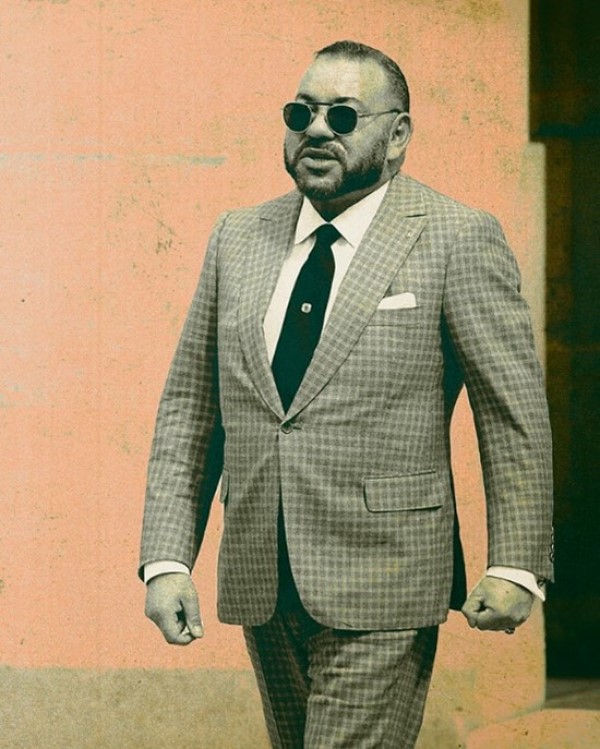
The first indication that the makhzen was fighting back against those held responsible for diverting the king’s attention came in December 2020, when an article appeared about the brothers in the Moroccan press. “The bad reputation of the Azaitar trio”, ran the headline on Barlamane, a pro-makhzen website, describing them as “notorious crooks” with “immoral inclinations”. Another outfit loyal to the establishment, Hespress, said the brothers wielded a “Rasputin-like influence”. Few doubted that Hammouchi’s agents were involved.
The few courtiers still with him frequently replaced their SIM cards for fear that the makhzen was listening
More damning material about the Azaitars came out in the months that followed. Chouf TV broadcast footage of the brothers pushing themselves to the front of a queue at a government hospital. Hespress released Abu Azaitar’s German criminal record last March: “Theft, extortion, fraud, physical violence, criminal conspiracy, robberies and recidivism, computer fraud, driving without a licence, bodily harm causing permanent disability, assault and battery, drug trafficking, forgery and resistance to law enforcement. An incredible pedigree.” Another Hespress article detailed Abu Azaitar’s alleged extravagance, which included driving a €3m Bugatti Veyron.
It was an unprecedented attack on the royal inner circle. Some Moroccans derived a certain schadenfreude from watching one section of the elite tear into the other. “Given the makhzen uses sex as a method to delegitimize, why should it spare the brothers?” asked Hicham Mansouri, a dissident journalist who was jailed on adultery charges.
If the stories about the Azaitars were intended to shame the king into resuming a traditional role, they backfired: the scandal seemed to push him further away. Last summer he moved to Paris for a five-month stay. Ostensibly this was to be near his ageing mother, who lives in the posh suburb of Neuilly, but few found the explanation convincing. Privately some in the king’s entourage said he was sulking, and would stay away until the makhzen stopped lecturing him on how to live. “He sees the makhzen as the enemy,” says a confidante. “It was against him from the first.”
The king’s exile in France was nothing if not sumptuous. For much of 2022 he divided his time between a mansion near the Eiffel Tower and a high-walled chateau in the rolling hills of Betz in the north-east of the country. But even there he seemed to find it hard to escape. The few courtiers still with him frequently replaced their sim cards for fear that the makhzen was listening. They changed the addresses of meeting places at the last minute and looked around them before talking. In October Mohammed returned to Morocco for the state opening of parliament. But he was soon off again for Gabon.
Mohammed is said to be becoming more irascible as he becomes more isolated, snapping at the few visitors who come to see him. He was too indisposed to attend Queen Elizabeth II’s funeral in London, or the Arab League summit in Algeria, or Morocco’s string of successes at the World Cup (though he did drive through the streets of Rabat to celebrate with fans). When the Spanish prime minister arrived in Rabat in early 2023 to improve ties between the two countries after a diplomatic crisis over Western Sahara, the king wasn’t around.
If the makhzen wants its king back, says a confidante, it must accept his terms and embrace the Azaitars. Until then, the stand-off will continue
The situation in Morocco remains volatile. Though tourism has rebounded, crunches in the supply of energy and food following Russia’s invasion of Ukraine have sent inflation soaring. Food costs in January were nearly 17% higher than they were at the start of the previous year. The government has rolled out a support programme which includes subsidies for staple goods. But poor Moroccans still suffer. Their mood is unlikely to be helped by knowing how much money the Moroccan elite has been accumulating (a leaked cache of offshore financial documents called the Pandora Papers shone light on this at the end of 2021).
Few Moroccans dare utter the word “abdication”, but they have begun to refer to it in euphemisms. There is talk of the “Spanish model”, a reference to Juan Carlos of Spain, who was persuaded to hand over the crown to his son after a series of scandals. Some eye Mohammed’s 19-year-old son, Hassan, as a successor; others look to the king’s steely younger brother, Rachid.
But the king has one advantage over Juan Carlos. In Morocco, the king, not parliament, is sovereign, and Mohammed shows no signs of retiring gracefully. Despite his dislike of the job, the king seems to have grown increasingly fond of the perks of office.
If the makhzen wants its king back, says a confidante, it must accept his terms and embrace the Azaitars. Until then, the stand-off will continue. In combative moments, Mohammed’s advisers even talk of sacking security chiefs, Hammouchi included.
The makhzen is unlikely to meekly accept such a move. A military coup against the king is not unthinkable. Hassan’s security chiefs tried twice to overthrow him. The unknown variable in all these calculations is the dynamic on the streets. Thousands demonstrated in the capital at the end of last year, railing against “despotism” and the high cost of living. A terrible drought is currently adding to discontent. More protests are developing. “You feel you’re living on a powder keg,” says an insider. Moments like this call for leadership. But Mohammed and the brothers have gone to the beach.
The articles may contain material provided by third parties derived from sources believed to be accurate at its issue date. While such material is published with necessary permission, the Westpac Group accepts no responsibility for the accuracy or completeness of, nor does it endorse any such third-party material. To the maximum extent permitted by law, we intend by this notice to exclude liability for third-party material. Further, the information provided does not take into account your personal objectives, financial situation or needs and so you should consider its appropriateness, having regard to your personal objectives, financial situation and needs before acting on it.